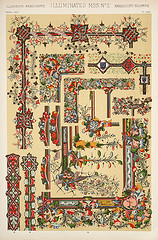Pluralism and Multiculturalism

I can't accept an America which is monolithic or imperial, no matter how pacific, affluent, or secure such an America might be.
A place where men and women of all ages and races and cultures and creeds might thrive without any sacrifice of individuality -- that's the America of which I dream, and I believe that's the America dreamt.
A place where individuals might thrive -- but without any fuzziness of thinking and feeling required to make this fitting together in a place possible -- for I do not believe that such fuzziness of thinking and feeling is a manifestation of thriving -- I believe that fuzziness to be a symptom of the very opposite.
I fear that we have not yet succeeded in creating a pluralism, a multiculturalism, which is not a fuzziness of thinking and feeling. We have not created a pluralism or a multiculturalism which fully thrives, or thrives without a debilitating and counterbalancing sacrifice of some sort which we find difficult to examine and rigorously problematicize.
" E pluribus unum..."
The parts make a terrible sacrifice to become a unity; but without unity, the parts will never thrive. Are the sacrifices for the greater thriving of those parts, or a " desiring of one's own repression"?
I don't think we know, but surely it is within our power to examine the nature of this sacrifice we make, to scrutinize the limitations it imposes upon us... which we impose upon ourselves. To whom or what is this sacrifice currently directed? Can the sacrifice be directed to ourselves, to our own thriving? Is there such a thing as an 'immanent' sacrifice?
To just what extent is the materialism of Marx a materialism, and to just what extent does it retain idealism? Does Marxism exhibit any utilization of the concept(s) of multiplicity? Could it be that the thinking of multiplicit(ies) is crucial to any accurate materialism, and that the key feature of idealism is its crushing of the power to think multiplicit(ies)?

2 Comments:
I concur that the crucial difference lies between a philosophical practice which proliferates multiplicities and one which subjugates them. I don't know what's accomplished by labelling one "materialism" and the other "idealism."
For one thing, adopting this language would make it harder to see what James is up to, since he explicitly refuses to countenance what he calls "materialism." On his view, all the real philosophical action transpires between "monistic idealism" (Hegel, British idealism, etc.) and "pluralistic idealism" (James, Bergson).
Interestingly, the Jamesian themes here -- that things stand outside of each other, confront each other from the outside, and enter into relation from exteriority -- also proved crucial for Levinas' ethics. At the beginning of Totality and Infinity Levinas claims that atheism is a necessary requirement for ethics, because atheism requires that finite beings face each other without any mediating or unifying term (the revelation of Torah, Christ, or Koran).
Levinas inherited this directly from Bergson. So, though I've become highly critical of Levinas recently, there's nevertheless an insight here that I want to retain: that ethics, in the sense of responsiveness to the particularity of the other person, is only possible if one rejects the absolute.
"I don't know what's accomplished by labelling one "materialism" and the other "idealism.""
I hope I can make what I am trying to do here easier to understand - if I don't succeed, please help me by asking additional questions.
I think what can get easily lost in this labelling is the historical perspective - the political strategy and actualization of a political strategy whereby what's labelled by the word "materialism" is a crucial set of social practices which challenge and attempt to overthrow another set of social practices which are not mislabelled as "idealism."
The strategies of "materialism" oppose absolutisms; the strategies of "idealism" are in support of them. I even think that the word "materialism" is empty without this distinction and the playing out in history of this dynamic between the two.
I know that what I am saying above will sound perverse and biased to many, who might believe, say, that they "idealistically" oppose totalitarianism. ( Oppose it on the basis of their idealism.) I am saying that they misread history and misunderstand philosophy. These people might also believe that democracy is an idealistic form of government - and I am saying that it is not, and that democracy is foundering, or can be manipulated to founder, based on this misconception.
They might also believe in the existence of "idealist" science - something else I think is complete confusion.
I understand that James doesn't want to be understood as being in favor of what he calls a "crude materialism," and as a matter of fact, neither do I. But I don't think he could be more clear about the way that he is associating idealism with pernicious absolutisms of various kinds, including political kinds.
Idealism has not historically been understood in the way you give here, as a " philosophical practice which subjugates multiplicities." Idealists don't at all understand themselves as doing this. Part of what I am trying to get across is that if you think in terms of multiplicity, you are already in the process of freeing yourself from idealist tendencies... that idealism can't withstand or even coexist with pluralism, multiplicity, or however you wish to label this kind of thinking.
I wish to label it materialism... I think that the thinking of multiplicity is a furthering of the historically unfolding strategy of breaking out of totalizations and absolutisms. I understand your way of describing idealism as a materialist description of it. It is beyond idealism, historically beyond it, and this can't be forgotten or overlooked.
Post a Comment
<< Home